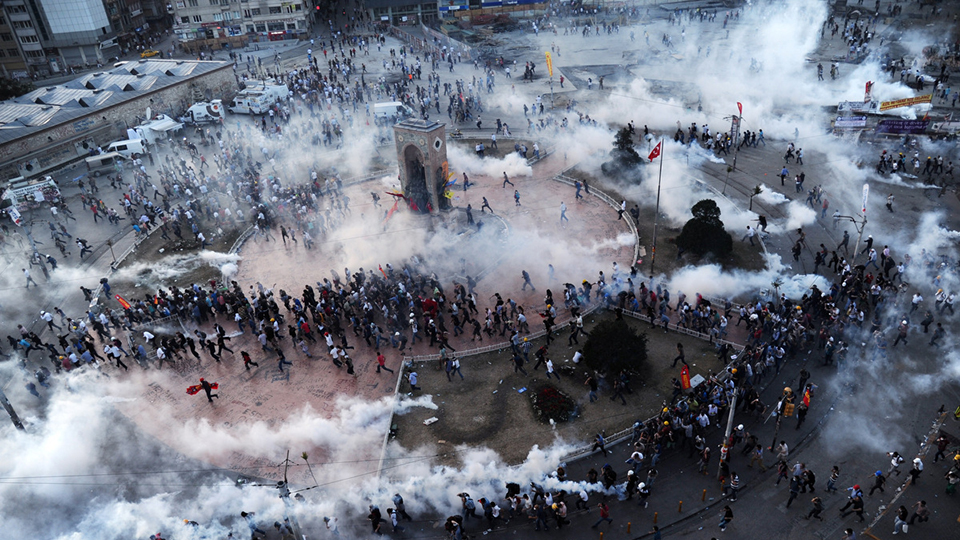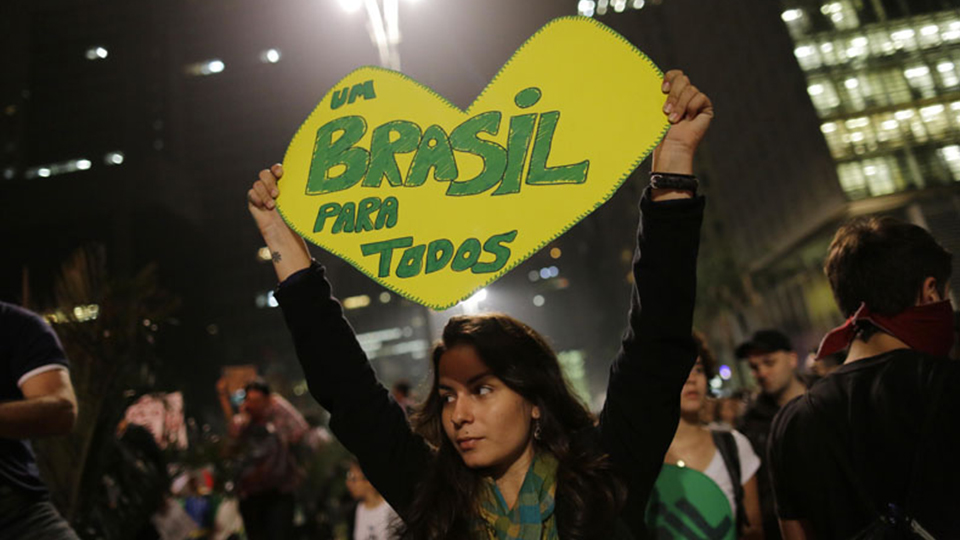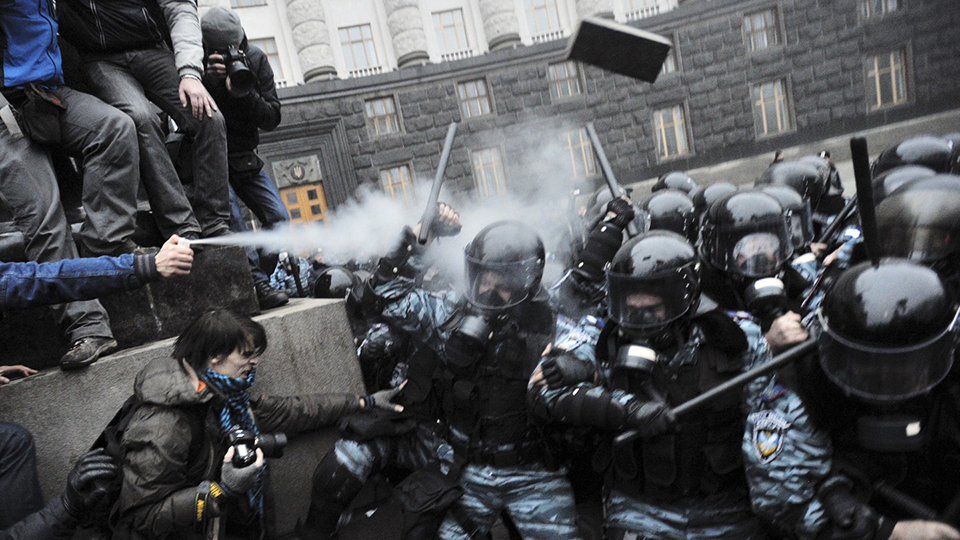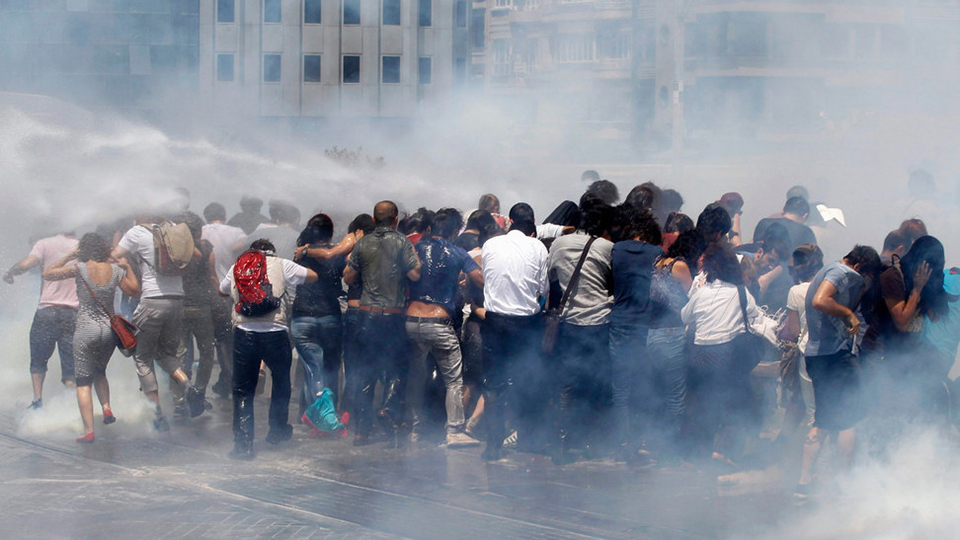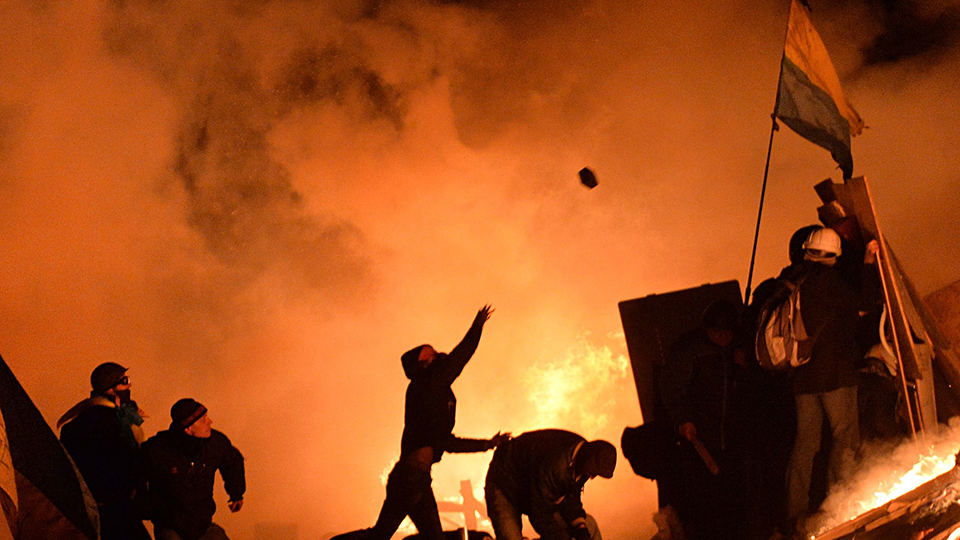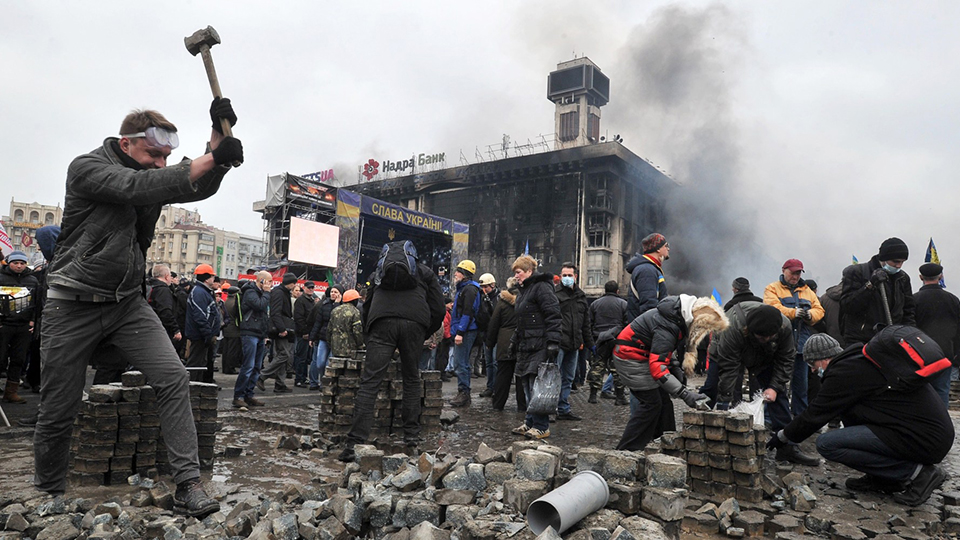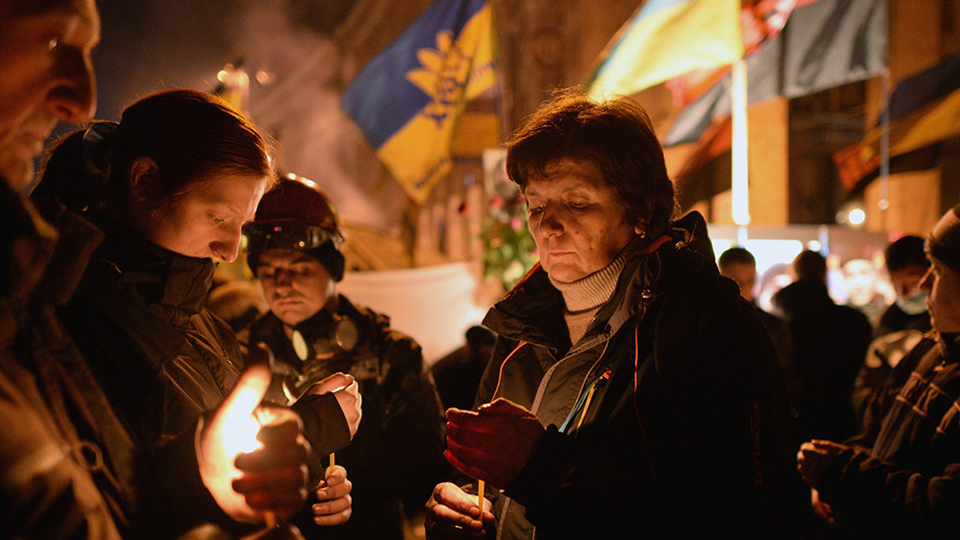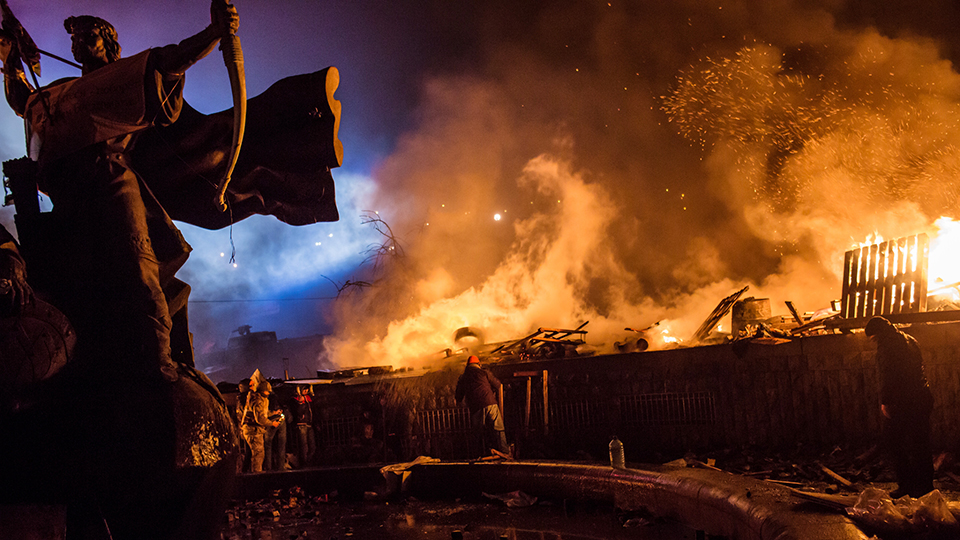
If Karl Marx raised his head, he would be absolutely baffled: Revolts are shaking the world, bursting in the most unexpected places, but they rarely take power. The conditions for rebellion are as sharp today as in the nineteenth century, but few protests lead to the literal meaning of revolution, that "violent change in political, economic or social institutions of a nation."
In addition, working people, whom Marx called the proletariat, seem not to have found control of the worldwide riots they are sparking – nor is class struggle the leitmotif of the wave of social unrest that has been repeating since the Arab Spring. Instead, a new political subject – more diffuse, more heterogeneous, more unclassifiable – is blurring the boundaries and formal definitions of revolution.
Measuring the period between 2006 and 2013, we live in the most agitated era in modern history – more intense than 1848, 1917 or 1968 – according to the World Protests report released last fall by the Initiative for Policy Dialogue and the Friedrich Ebert Stiftung in New York. We sail in an unstable political ocean, surfing bursts of protests and unexpected revolts emerging across the globe: 843 large protests in the last eight years, according to the study.

British journalist Paul Mason sees a strong parallel between the current unrest and the waves of discontent stirring in 1848 and 1914. The philosopher Alain Badiou even envisions a "rebirth of the story" in a new age of "riots and uprising" after a long revolutionary interval. It may be what we are seeing now with the constant procession of protests and pop-up revolts. People take the streets. They hack codes (legal, social, urban). They build new communities. But the establishment, in most cases, barely ruffles.
The increasing global revolution remixes and recombines social ties. However, when a revolt takes power, as in Ukraine, it may be with the help of conservative or even fascist, neo-Nazi forces. And a popular uprising against a dictatorship, as in Egypt, may lead to a new military government. "The protester" may have made the 2011 cover of Time magazine, notes Mason, but "not a single revolt has achieved its goal." When Passe Livre protests in Brazil reached their initial goal (reduction of the public transport fare by 20 cents), the crowd already had dozens of new demands: quality education, political transparency, participatory democracy... Is global revolution infinite revolution?
However, some of the recent revolts do not even fit the definition of "popular" – and certainly few have anything to do with the Marxist-Leninist vision of an uprising by the proletariat. Time's cover protester can be a Spanish graduate with no future. A poor worker in Brazil drowning in bank debt. Or a Turkish middle-class employee whipped by Istanbul's gentrification. Today, urban precariat or netizens – insufficient concepts but more proper than proletariat – can fight hand to hand with retirees outraged by political corruption in Bulgaria or Greece.
Do we live in the most revolutionary era of history or just a prelude of discontent like the one that led to social unrest in 1848? Is the big explosion still coming?
Around the World in 843 Riots
The World Protests report – which was compiled by Isabel Ortiz, Sara Burke, Mohamed Berrada and Hernán Cortés, and is perhaps the most comprehensive study of its kind produced to date – details 843 significant protests that occurred in 84 countries between 2006 and July of 2013. Its methodology is classical. It does not talk of networked revolts, cross-subjective infections or global connections. The symbolic, emotional or effective memes used in those protests – like the one enjoining the 99% against the 1% in 2011 – appear in small boxes under the report.
The study mentions Occupy Wall Street and the Spanish Indignados, looking at the objective causes of these revolts and the particulars that defined them: lawsuits, who were the organizers, the formats of the protests, the opponents, the results. At first glance, the reader may not recognize the radical novelty of this report, which revealed that the main cause of the 2006-2013 riots was "economy or anti-austerity measures" (488 protests), and that marches or demonstrations were still the most common protest format (437).
However, a careful observation of the World Protests study shows other surprising details. Even while analyzing the objective causes, explanations or macro-economic conditions that led to the wave of rebellion, something else is shaking the world. Governments may still appear to be the main opponents of the demonstrators, says the report, but something more liquid and atmospheric is unscrewing the established order. The demand for "Real Democracy" is the second most common claim in the protests (210), while the "failure of representative democracy" was the cause of 376 protests.
World Protests reveals that "New agents of change" (such as Occupy, 15M/Indignados, Anonymous, etc) have become, as organizers, almost as important as unions. The "occupations" and "assemblies" (219 total) are now the second most common format for protests, following classic demonstrations. The emergence of "leaks" – such as the Iraq, Afghanistan and other logs released by Wikileaks, the Edward Snowden files, or the political databases released by Anonymous at the start of the 2011 Jasmine Revolution in Tunisia – complement this intriguing new landscape of global rebellion painted by the World Protests report.
Networked Revolución
"The State is institutional and static, the revolution is fluid and dynamic," said Emma Goldman in 1924, describing how the "State killed the Russian Revolution," while widening the semantic field of revolution for the 21st century. What Goldman could not witness, we may be seeing right now: an underground, symbolic, liquid revolution that is eroding the foundations of the State.
This revolution prefers the lateral, the asymmetrical, rather than the solid and defined territories of conventional politics. Perhaps we have entered into a new age of resistance, as Costas Douzinas points out – an era with new "forms, strategies and subjects of resistance," a new insurrectionary era played by a new diffuse, lateral, inter-class, transnational subject. Such a subject replaces the ideologies and close identities of the past with a new activist ecosystem, driven by hyperlocal desires while participating in a new magma of intercontinental struggle.

Marx would be dazed and confused. Perhaps he would be enjoying the insurrectionist virality of this new century. Maybe he would also be understanding that "masses" and the proletariat are giving way to a new collective body – a new crowd that disperse and reconfigure the world without taking power, as John Holloway used to say. Faceless crowds without leaders are replacing politics in parts of the world without changing the operating system suddenly. What we are seeing is a resilient and mutant crowd that, although it is not able to take formal power, finds the gaps (and hacks) inside to sow the seeds of the new world.
Or perhaps the planet of 843 riots is not immersed in a revolution. Perhaps it's a new networked renaissance. "The renaissances are recontextualizing historical moments," argues Douglas Ruskoff. And maybe, above all, a symbolic revolution is brewing in the minds of people everywhere. The difference, now, is that subjective revolution does not depend on a vertical apparatus as in Hitler's Germany. Rather, the subjective revolution may be born after connecting nodes, after a sequence of assembled indignation and linked social empowerments.
The symbolic revolution are like wheels without brakes, from the networks to the streets, remixing a single shout in a multi-cause revolt as happened in Istanbul's Gezi Park or the Passe Livre protests in Brazil. It is not for 20 cents: it is for civic rights. And in the world of 843 revolts, nothing is linear or predictable. In Mali, they take the streets against the rights of women. In France, against gays. In Austria and Singapore, against immigrants. And if the citizens of the richest country in the world decide that their social situation is outrageous enough, they too would do a forceful revolt.
Paul Mason cites a comment made by Virginia Woolf in the early 20th century, in trying to explain the 21st century: "Around December 1910 human character changed." Virginia Woolf was referring to a revolution in social life and art that transformed the conventions of the Edwardian era into "something dead." Protesters, says Mason, may have now made the our century seem as alien and remote as the 19th century was to Woolf and her revolutionary circle.
Bernardo Gutiérrez is a Spanish journalist and writer who researches networked revolutions, hacker culture and peer-to-peer politics. Based in Sao Paulo, Brazil, he is the founder of the global innovation network FuturaMedia.net and participates in the Global Revolution Research Network (GRRN) of Open University of Catalonia. Follow him at @bernardosampa.
3 WAYS TO SHOW YOUR SUPPORT
- Log in to post comments



